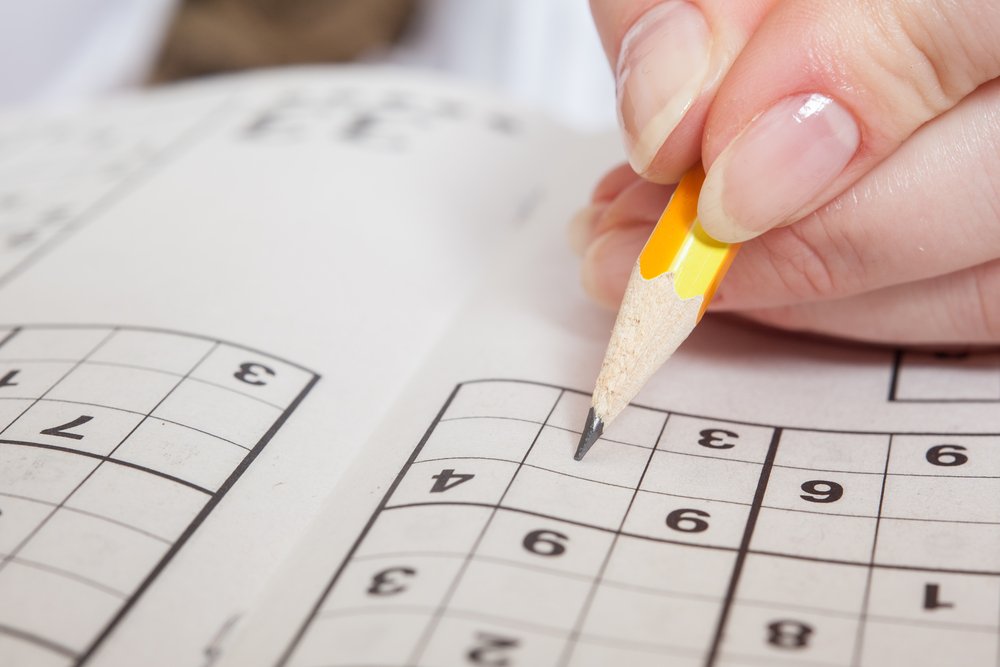Last Updated on January 7, 2024 by Gamesver Team and JC Franco

Solving various Sudoku puzzles entails learning three or four elementary steps and practicing ways to use them more efficiently. Sudoku puzzles are amongst the easiest ones to manufacture. There is software out there that can generate these puzzles without any human input. All they require is a difficult input, and they will develop a brand new Sudoku puzzle with different numbers filled in the squares.
Sudoku resembles those factory-produced hamburgers people love to hate. With that in mind, I have comprised the following list of fourteen reasons why I personally find Sudoku to be a waste of time. The good news is that all of this is subjective. You may find Sudoku a valuable addition to your lifestyle regardless of its numerous drawbacks.
1. It Has No Soul
As I’ve mentioned above, Sudoku has been produced by computer programs for quite a while now. The thing that gets me immersed in a puzzle game is knowing there’s an ingenious and creative person behind it who’s sat down for hours, maybe even days, to create something that will inspire others to swirl their brain a little bit.
When you play a human-created puzzle, you’re not just trying to figure it out based on general logic principles. You also learn about its creator and their way of thinking because it’s imprinted in their creation the knowledge you need to solve it. Sudoku has none of that; Software can ‘dish out’ hundreds of nearly-identical puzzles in an afternoon.
2. It’s Repetitive
While there are probably no two identical Sudoku puzzles in the world as far as number placement goes, the principles by which the game is played are so limited and straightforward that soon you’ll find there’s almost no real variety to it. Play a couple of dozen games, and you played them all. Once you get quite good at solving more difficult Sudoku puzzles, you’re unlikely to encounter one you won’t be able to solve.
3. It Offers No Real Sense of Achievement
When you’re first encountering Sudoku, it sure can be challenging, and solving the puzzle may get you a little achievement boost. However, this doesn’t last long, and the moment you get actually good at the game and begin solving the puzzles consistently and with ease, all that sense of accomplishment is gone.
You are just doing the same thing over and over again with no real sense of adversity. You can combat this by downloading one of many Sudoku apps with timers and challenging yourself to beat your own time score at various difficulties, but even this has a cap threshold beyond which you cannot go.
4. One Mistake Can Cost You the Entire Puzzle
Whether you are a new Sudoku player still striving to get a grasp on the game, or a seasoned Sudoku veteran who’s simply hasn’t had enough coffee that day, it’s really easy to make a mistake. You can completely overlook it until you’re almost through with the puzzle and realize it’s all wrong. Tracing your wrongful inputs back to the initial one is almost impossible, which means you can’t fix what you’ve broken and have to accept defeat, all because you wrote down one wrong number somewhere fifteen minutes ago.
5. It’s Frustrating
If you’re a Sudoku beginner, you will likely find even the easiest puzzles quite challenging. Even experienced players occasionally get stuck on a puzzle and become increasingly frustrated with it as they’re unable to solve it. If you’re unable to solve a Sudoku, it’s easy to get stuck on it, overthink it, and stress about it. Instead of being a fun pastime, it can distract you from other more important and enjoyable things in life.

6. It’s Addictive
Addiction to Sudoku is a real thing. Most people assume it’s harmless because it is only a numbers game, but they tend to forget that an item doesn’t need to be a chemical substance to inspire addiction. Sudoku certainly contains conceptual elements that can produce this effect.
All addictions are unhealthy, even playing Sudoku. Don’t mistake enthusiasm for addiction, however. The easiest way to distinguish them is to remember that an enthusiastic activity brings value to a person’s life while addiction is taking it away. An item has become an addiction when the person feels like they can’t go a day without it and when they start neglecting other aspects of their lives in favor of that activity.
7. It Requires Patience, a Lot of It
The average person takes more than a few minutes to solve a Sudoku. It requires patience, time, and attention. If you’re not very patient by nature, you will likely find yourself very disappointed and annoyed with the game.
8. It’s a Distraction
Humans love a good distraction. Most of our daily lives have become pretty stressful over the past few decades, and we all like to indulge in a bit of escapism now and then, be it through TV, books, or Sudoku puzzles. While this can be a helpful coping mechanism when applied conscientiously and with care, escapism can quickly overtake us and pull us out of reality, causing our lives to fall apart around us even harder.
9. It Can Leave You Feeling Incomplete
There are thousands, if not millions, of Sudoku puzzles in the world. If you are an avid Sudoku player, you might be familiar with the feeling of wanting to try and solve them all but knowing you’ll never be able to. This may leave you feeling a little incomplete and hollow.
10. It Can Cause an Unbalanced Lifestyle
While Sudoku can be an excellent activity for your brain, some studies have shown it can help keep your mental health at bay; it does not do wonders for your physical health. If you’re not careful, you may promptly abandon your workout routines in favor of sitting down in a comfy chair for a few hours of puzzling instead. Depending on your schedule, finding balance in this regard can be quite a challenge, so mind your Sudoku intake.
11. It Can Cause Shrinking Responsibility
Because of its addictive nature, Sudoku can quickly engage people into neglecting other activities or people around them. A parent may be more engaged in a Sudoku puzzle than in what their child is doing. A person may fail to listen to their partner while they’re trying to finish a puzzle, or you may choose to play a puzzle or two while waiting for your bath to be drawn and get distracted until your bath overfills. It’s important to stay mindful of the life and world around you regardless of how much you enjoy a game.
12. It Can Cause Anxiety
Playing Sudoku can be a relaxing activity to engage in after a long day, but it can quite as easily cause even more stress. Getting stuck on a puzzle or anticipating the upcoming puzzle difficulties, layouts, and solutions can be a source of anxiety for many people. If you find yourself to be one of them, you should probably avoid Sudoku.

13. It May Cause You to Abandon Your Mental Health Treatment
It’s common knowledge that mental health is essential. We are also familiar with the fact that Sudoku is often promoted as an activity that can help keep your mind sharp and active. For people who suffer from depression and/or anxiety, Sudoku can be pretty helpful at times. But in some cases, people may choose to abandon their mental health treatment plans and only rely on Sudoku to get them by; but while helpful, Sudoku is not enough.
14. It’s a Threat to Crosswords
It is common for avid puzzle game players to encounter Sudoku and completely abandon crosswords. The crossword community is reasonably worried about the threat Sudoku poses to their favorite pastime. They often criticize Sudoku players, whether they engaged in crosswords before or not, as being too lazy to learn about abbreviations, reversals, anagrams, homophones, etc.
The drawback is that while highly mentally engaging, Sudoku only requires you to train your brain to operate logically within a very narrow system. In contrast, crosswords need you to keep upgrading your general knowledge.
All Things Considered
There are many notable benefits to engaging in Sudoku, but the disadvantages are also numerous and can be pretty detrimental. To draw as many benefits from playing Sudoku as possible while keeping the disadvantages at a minimum, you must stay mindful of your behavioral and instinctive tendencies at all times.
While individual puzzles can take you as little as a few minutes to engage in Sudoku regularly and keep the rest of your life in check, you need to re-examine yourself and your choices 24/7. More often than not, Sudoku takes away more than it gives.

